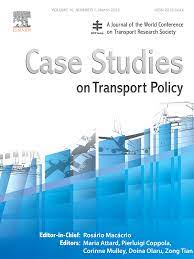Research Papers/Articles

Analysis of Barriers To Adopt Electric Vehicles in India Using Fuzzy DEMATEL and Relative Importance Index Approaches
2022
Author(s): Murugan M, Marisamynathan S
This study aims to identify the key potential barriers based on expert and customers’ perspectives. This study adopted the fuzzy DEMATEL method to identify the potential barriers based on expert opinion data and the Relative Importance Index (RII) method for prioritizing the barriers based on customers’ perspectives.
Optimal Sizing of Portable Modular Batteries for Electric Vehicles
2020
Author(s): Gong J, Wang Y, Zhao A, Zhao Z
In Europe and Asia, where most people live in high-rise buildings, electric vehicles (EVs) powered by portable batteries overcome two major deployment issues. The first is a lack of power-charging infrastructure, which makes an American-style charging model that works in the garage of a detached or attached single-family home impractical.

Recent Developments, Challenges, and Possible Action Plans for Electric Vehicle Charging Infrastructure in India
2019
Author(s): Save B, Sheikh A, Goswami P
This paper analyzes and focuses on the major challenges in EV adoption in India. The paper also highlights various charging standards available, the current status of EVs in India, and investigates various possible impediments to EVs charging infrastructure.
Battery electric vehicle access in Europe: a comparison of rural, intermediate, and urban regions
2022
Author(s): Morrison K, Wappelhorst S
This paper analyzes electric passenger car uptake in urban, intermediate, and rural regions in 17 European countries, with a focus on the latter. Rural regions generally see higher levels of passenger car usage and lower levels of public transportation availability compared to urban regions, while having higher possible access to home charging. Further understanding of how the rural battery electric vehicle (BEV) market is developing, and analysis of policies and actions in rural regions with high registration shares, can help to address inequities in electric vehicle access.
Scaling U.S. zero-emission shipping: potential hydrogen demand at Aleutian Islands ports
2022
Author(s): Georgeff E, Mao X, Rutherford D
The study findings make a strong case for federal funding to help jumpstart hydrogen bunkering at Aleutian ports. The favorable geography, significant latent demand, and untapped renewable energy potential in Alaska make this a unique opportunity for investment. That could take place through federal programs like the $2.25 billion set aside for port infrastructure under the Bipartisan Infrastructure Law passed by Congress in 2021.
Decarbonizing China’s coastal shipping: the role of fuel efficiency and low-carbon fuels
2022
Author(s): Mao X, Meng Z
This report takes a first look at China’s domestic coastal shipping sector and provides recommendations for actionable long-term decarbonization pathways designed to avoid exceeding its current share of transportation-sector CO2.

Impact of Using Electric Vehicle on Carbon Emission
2022
Author(s): Zhi R, Luo W
Electric vehicles (EVs) began to be produced and promoted to reduce carbon emissions. EVs have the potential to reshape the transportation sector across the world, drastically cutting carbon emissions and clearing the way for significant climate progress.
Data Cleaning and Restoring Method for Vehicle Battery Big Data Platform
2022
Author(s): Li S, He H, Zhao P, Cheng S
This paper makes the first effort to systematically solve data quality problems in cloud-based vehicle battery monitoring and management by developing a novel integrated battery data cleaning framework.
Annual Update on the Global Transition to Electric Vehicles: 2021
2022
Author(s): Cui H, Hall D
This briefing assesses the annual progress on the global transition to electric vehicles (EVs) at the global, regional, and national levels. Global EV sales reached a record-high of 6.9 million in 2021, a 107% increase from 2020. It is the first time since 2012 that the global EV sales doubled in one year. Of the vehicles sold, 98% were light-duty vehicles (LDVs) and 2% were heavy-duty vehicles (HDVs). By the end of 2021, cumulative global sales of EVs reached 18.6 million, a 58% increase from end of 2020. Of these vehicles, 95% were LDVs while HDVs accounted for 5%. In 2021, the global average EV share of new vehicle sales achieved an all-time high of 8.3%, up from 4.2% in 2020.
Mild-Hybrid Vehicles: A Near Term Technology Trend for CO2 Emissions Reduction
2022
Author(s): Dornoff J, German J, Deo A, Dimaratos A
This paper provides a comprehensive overview of mild-hybrid technology and recent developments in 48V mild hybridization of conventional vehicle powertrains. It estimates the CO2 reduction potential, as well as current and future system cost, for different mild-hybrid electric vehicle (MHEV) system configurations. It also reviews the market penetration trends and future projections of MHEV technology in Europe.



